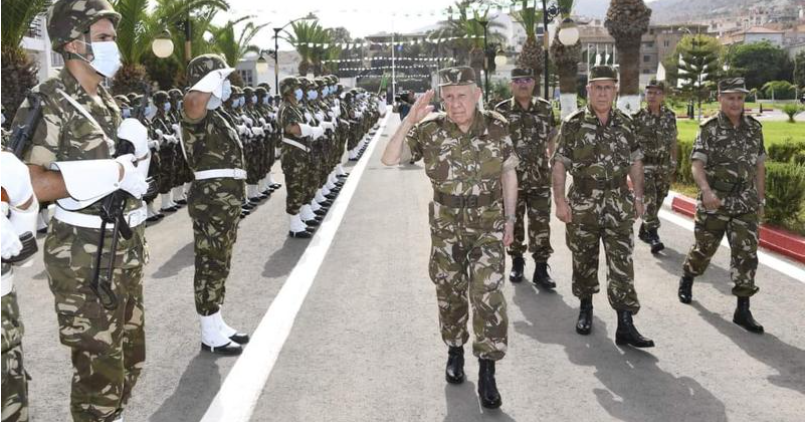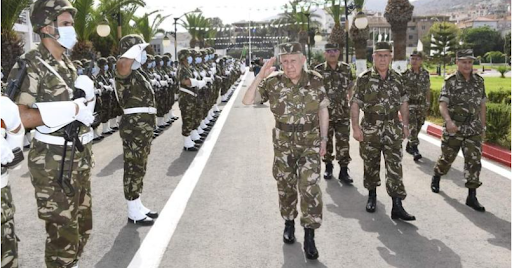
In retreating from the threat of military intervention to restore the elected government.. ECOWAS: Dialogue with the leaders of the Nigerien coup is the "basic" of efforts to resolve the crisis
The leaders of West African countries stressed Thursday that they will make negotiations with the military leaders who seized power in Niger the "base" of their efforts to defuse the crisis, in retreat from the threat of military intervention to restore the elected government.
"We prioritize diplomatic negotiations and dialogue as the basis of our approach," said Nigerian President Paula Tinubu, who is chairing the emergency summit of the Economic Community of West African States (ECOWAS) in Abuja.
The military council in Niger forms a new transitional government that includes 21 ministers
Today, Thursday, the head of the military council in Niger, Abd al-Rahman Tiani, signed a decree forming a new transitional government, local media reported.
Actoniger reported that Tiani signed the decree forming the transitional government yesterday, Wednesday, which is composed of 21 ministers and includes a small number of military personnel.
On July 27, soldiers in the Nigerien army announced, on state television, the dismissal of President Mohamed Bazoum, his detention in his residence, the closure of borders and the imposition of a curfew, explaining that they had decided to put an end to the current regime, after the deterioration of the security situation and economic mismanagement in the country.
In response to the military council's move, the Economic Community of West African States "ECOWAS" announced the imposition of sanctions on Niger, including closing its airspace and suspending trade exchanges with it.
For his part, Tianyi rejected these punishments, describing them as illegal, unfair and inhumane.
In early August, the participants in an emergency meeting of the Chiefs of Staff of the Armed Forces of the Economic Community of West African States, held in Abuja, adopted a plan in the event of a military intervention in Niger.
After mobilizing a force of 25,000 ECOWAS soldiers for possible intervention in Niger, the military council refused to receive the delegation of the Economic Community of West African States (ECOWAS), the African Union and the United Nations.
Coinciding with the announcement of the African crowd of a possible military intervention, the leaders of the military council announced the appointment of Ali Mahman Lamine Zain, an economist and former minister of finance, as prime minister in the country after Bazoum was dismissed due to his allowing foreign interventions in the country.
The military council announced the cancellation of a number of military cooperation agreements with France, in addition to ending the missions of the country's ambassadors to France, the United States, Nigeria and Togo.
The French Ministry of Foreign Affairs commented on the military council's decision to cancel the agreements concluded with it, stressing that it "only recognizes the previous authorities of Muhammad Bazoum" and rejects the decision.
It is noteworthy that US Secretary of State Anthony Blinken announced in a statement that his country's government had decided to freeze some "foreign assistance programs" from which the government of Niger benefits.
Likewise, the United States and ECOWAS confirmed that they hoped to reach a diplomatic solution in Niger that would put things back in order.
It is noteworthy that both Mali and Burkina Faso supported the Transitional Military Council in Niger, and declared clearly that "any intervention by the Economic Community of West African States to return Bazoum to power would be tantamount to declaring war on them."
In the same context, Russia believed that foreign intervention would not allow a solution to the crisis in Niger, and Kremlin spokesman Dmitry Peskov stated that "it is unlikely that the intervention of forces from outside the region will allow the situation to improve."
It is noteworthy that the countries of the European Union began yesterday, Wednesday, to prepare to impose the first sanctions on members of the military council in Niger.
The situation in Niger raises concerns about the future of the country and the region, at a time when it faces increasing security challenges due to the threat of armed groups growing in the Sahel region. It also raises concern in the West, especially France and the United States of America, because the ousted president is considered Paris's first man in the African Sahel countries.






































